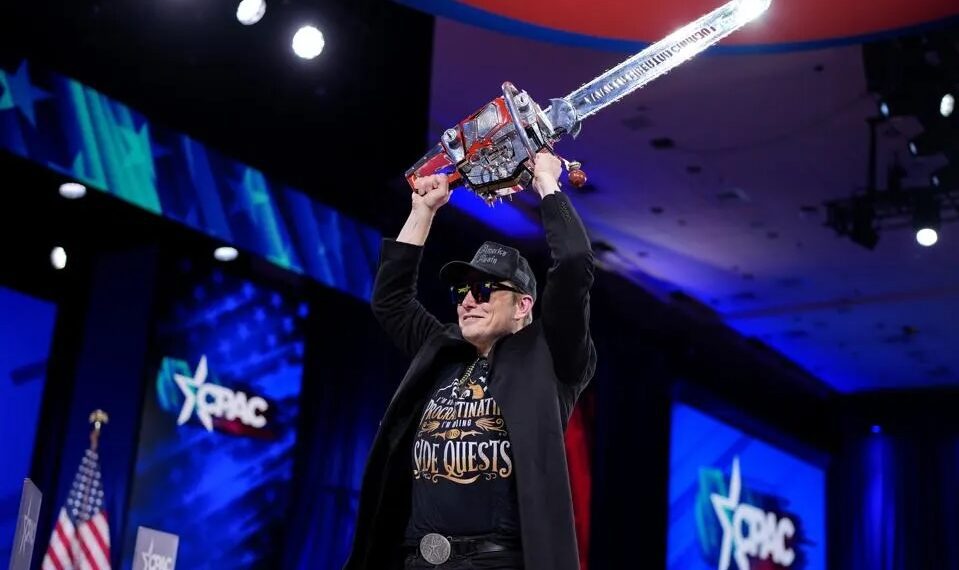By John F. Di Leo, Opinion Contributor
As the month of April began, and the Trump Administration continued its cost-cutting measures across the federal government, the news reported that thousands of Health and Human Services employees received their pink slips.
Why?
Because the federal government is too big, that’s why.
We – that’s you and I – the American people – our entire nation – simply cannot afford a national government as big as the one with which we have been saddled, and President Trump has directed his administration to address that problem as quickly and completely as possible.
A compassionate public cries out, “Does that mean all these people deserve to be canned?”
And the honest answer is, probably not, but that’s not the question.
In any major layoff, there are all sorts of people caught up in the list. There are the brilliant employees and the slower employees. There are the efficient ones and the inefficient ones. There are the really hard workers and the layabouts, the innovators and the drones. There are the leaders and the followers.
Every large employer includes some of all these groups in its employee pool, and that means no matter how hard you try, every mass layoff will end up cutting some of the good ones along with the rest.
But knowledge of that fact just can’t stop the cuts from being made.
Because the cuts are necessary.
The simple fact is, if the government is too big, we have to cut some of the people. We have to. It’s rough on them, sure, but it’s never happened before, and it needs to. It has to happen.
These government employees do all sorts of things. Some inspect things, sometimes well and sometimes poorly. Some write new rules, sometimes well, and usually poorly. Some never allow their personal political beliefs to creep into their work, and others view their government job as the perfect opportunity to let their personal political beliefs rule their work.
Our massive government employs all kinds, and some of all of these types will be out of a job when this layoff is done.
We are asked, but won’t it cost the economy more, if these important jobs aren’t filled? The honest answer is, “no, it won’t.” Because most of these jobs aren’t needed.
No matter how hard they may work at their government jobs – how diligent, how dedicated – the odds are that the economy will chug along more smoothly without them.
The human race has been around for thousands and thousands of years, and most of these federal agencies and bureaus have only been around for ten or twenty years. The human race did fine without them until then; the United States did fine without them until then.
Heck, the federal government itself did fine without them, until just the past generation, when all of a sudden, an explosion of federal hiring, mostly by the Clinton, Obama and Biden regimes, padded the federal government with tens of thousands of cripplingly expensive salaries and benefits to an unprecedented degree.
Some of these people are well-intentioned, and even do good for the country.
But most of them – no matter how well-intentioned they may be – are destructive to the country, because their very positions act as impediments to economic growth. The bigger the government is, even if it’s staffed with good, well-intentioned people, the more weight there is for the private sector to carry. That slows down the private sector – slows it to a crawl.
The diligent regulator who throws up a permitting delay on a planned oil rig or fracking project or factory expansion may do it for the noblest of reasons; he may believe in the global warming hoax, or think he’s saving some snail darter or spotted owl from extinction. But what he’s really doing is costing people jobs, costing communities needed revenue, costing investors their 401K funds and costing good workers their next chance at a career.
Many of these regulators, maybe even most, no matter how good their intentions may be, need to be relieved of their duties, separated from the powerful sword that they have wielded for so long.
Is that rough on them? Sure. And we are right to feel compassion for the decent ones.
But our society needs an unencumbered private sector again, just to survive. In order for the American people to prosper, our government – at all levels, by the way, not just at the federal level – must shrink until it’s smaller than it has been for generations. We cannot progress until these obstructions are removed.
And don’t worry too much about these recently unemployed regulators; as new jobs open up in the private sector, these former bureaucrats will find new careers, as will their neighbors. As President Kennedy so memorably said, “a rising tide lifts all boats.” When an economic boom commences, the private sector will have plenty of openings, at every level.
(And then maybe, just maybe, when these former bureaucrats find themselves happily accepting such jobs, they’ll rethink their former zeal in standing in the way all the time, and preventing such private sector opportunities, for so many years, though such self-awareness may be too much to hope for.)
As we watch the wailing and gnashing of teeth, we cannot help but wonder – when private companies have had layoffs over the years, sometimes hundreds, sometimes thousands, sometimes tens of thousands let go at once – did these people show as much compassion to their fellow man as they now show to their overlords?
When high taxes, crippling federal and state regulations, and often unfair foreign competition have caused private companies – from manufacturers to retailers, from truckers to restaurant chains – to implement huge layoffs to avoid bankruptcy, have these same reporters, politicians and activists shed as many tears for them as they do, today, for laid-off bureaucrats?
In fact, come to think of it, a lot of those private sector layoffs might never have occurred, if it weren’t for the actions of some of these regulators over the years.
Not to say they all deserve it, of course. Not every government employee now finding himself without a federal employee ID was the reason for shuttered textile plants, shuttered lightbulb factories, shuttered foundries, shuttered power plants, shuttered exploration and development companies.
But some certainly were.
And – looking strictly at the big picture – their loss is, without a doubt, the American people’s gain.
Copyright 2025 John F. Di Leo
By Illinois ReviewAurora Mayor Richard Irvin faced an upset as he was defeated in his bid for a third term, losing to Alderman John Laesch 52-47.“We fought hard....
Read moreDetails







